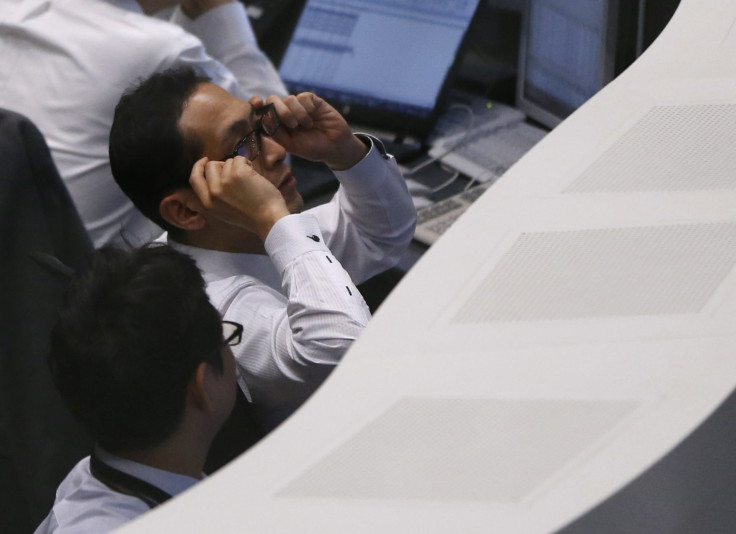Most Asian Markets Extend Gains As Oil Rises, Draghi Vows To Fight Deflation

Asian stocks were mostly higher early Tuesday, after huge gains Monday, as oil gained and the European Central Bank reiterated its readiness to fight deflation.
Japan's Nikkei 225 rose 0.3 percent. It earlier fell as much as 1.3 percent after a 7 percent surge on Monday. South Korea's KOSPI rose 0.6 percent and Singapore's STI climbed 2.7 percent. Australia's ASX 200 was down 0.2 percent. U.S. financial markets were closed Monday for the Presidents Day holiday.
U.S. crude jumped as much as $1.26 per barrel, 4.3 percent, to $30.70 on reports that Saudi Arabia and Russia, the world's two biggest oil producers, will meet Tuesday in Doha, Qatar. This raised speculation they would take steps -- mainly reducing production -- to boost oil prices. Oil has fallen from over $100 in the last year and a half amid rising production and slowing growth, hurting oil producing companies and countries and the many industries around the world that supply them.
On Monday, European Central Bank President Mario Draghi said the bank would act if lower oil prices or financial market turbulence -- which has been due in large part to lower oil prices -- add to the deflation it is trying to fight. The bank lowered interest rates to negative as early as 2014 to spur banks to lend and businesses and consumers to spend. Still, inflation remains well below the bank's 2 percent target, giving businesses and consumers reason to put off spending, since prices aren't rising much anyway. Last month, Draghi said the bank, which holds its next policy meeting March 11, will review policy sooner rather than later.
Monday's gains were fueled by positive weekend comments made by People's Bank of China Gov. Zhou Xiaochuan about the yuan and the country's economy. The yuan had its biggest gain since 2005, damping concerns Chinese nationals and foreign investors will pull their money out. Then Japan reported weaker than expected growth in gross domestic product, triggering speculation of more stimulus. Japan stocks jumped 7 percent.
"Reading the headlines this morning would make you think the world was fixed,” said Evan Lucas, a markets strategist in Melbourne at IG Ltd., as Bloomberg reported. “The Zhou effect cannot be ignored and the yuan fix coupled with his comments should settle the fear factor around an August 2015 style devaluation and capital outflows.”
“Japanese markets have been swung around by outside factors, but those factors are becoming more positive,” said Toshihiko Matsuno, chief strategist at SMBC Friend Securities Co. in Tokyo, as Bloomberg reported. “But still volatility is very high and market sentiment is fluctuating. It is too early to say we have seen the bottom.”
© Copyright IBTimes 2024. All rights reserved.











